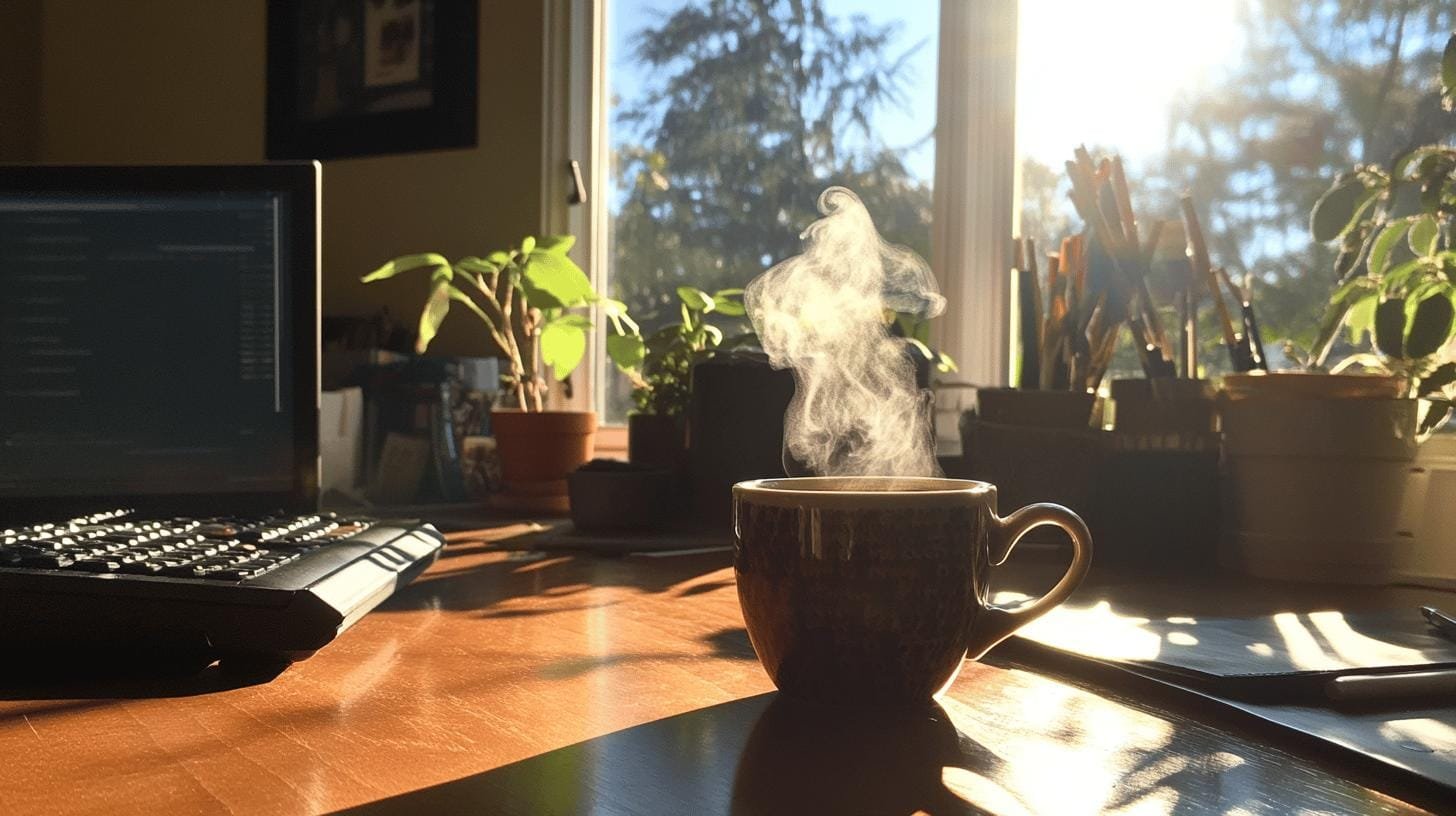
6 Ways Specialty Coffee Brands Build Loyalty and Stand Out
Discover how top specialty coffee brands create lasting loyalty through storytelling, sourcing, and community connection. Real tips from 6 industry experts.

Can caffeine cause stress without you realizing it? This provocative question has sparked discussions about the caffeine stress link, as caffeine—a socially accepted stimulant found in coffee and energy drinks—can trigger stress-related hormone production. Understanding caffeine’s impact on mood reveals how it could push your body into a prolonged ‘fight or flight’ state, elevating cortisol levels and potentially causing stress to spike. Delve into the intricate connection between caffeine and stress, and uncover the physiological mechanisms that could be affecting your daily stress levels.
Can caffeine cause stress? Yes, it can. Caffeine, a popular stimulant found in coffee, energy drinks, and chocolate, may contribute to stress. It works by making neurons in the nervous system fire faster. This increased activity causes the production of stress hormones like cortisol, preparing the body for a ‘fight or flight’ response. While useful in short bursts, continuous caffeine consumption keeps the body in a constant state of alertness and stress.
The connection between caffeine and stress relates largely to cortisol. Caffeine boosts stress hormone production, raising cortisol levels for up to 18 hours. This prolonged state can lead to stress-related symptoms as the body stays on high alert longer than needed.
Common symptoms worsened by caffeine include:
It’s important to understand caffeine’s effect on mood and stress. While it improves alertness, excessive intake can increase stress and anxiety, impacting overall well-being.

Cortisol, known as the stress hormone, plays a crucial role in managing stress. It raises blood sugar levels to supply energy during stressful times. When stress occurs, cortisol prepares the body for action, aiding the ‘fight or flight’ response.
Caffeine, as a stimulant, impacts the nervous system, boosting neuron activity. This enhanced activity prompts adrenal glands to release more cortisol, keeping the body alert longer. Studies show caffeine can elevate cortisol levels for up to 18 hours. This prolonged exposure to high cortisol levels contributes to stress-related symptoms like anxiety and restlessness.
People react differently to caffeine due to factors like stress levels and genetics. Some may experience a significant cortisol increase, while others may not. This variability influences how caffeine affects stress levels. Lifestyle, genetic factors, and existing stressors can modify the body’s response to caffeine, resulting in varied impacts on stress hormones.
Too much caffeine can worsen anxiety symptoms. It stimulates the central nervous system, heightening arousal and alertness. This increased nervous activity may intensify anxiety, keeping the body in a state of readiness. Consuming large amounts can lead to symptoms associated with anxiety disorders, so monitoring intake is important.
Caffeine’s effect on anxiety extends beyond discomfort. It can amplify stress from sources like work or social interactions. Its stimulatory effects make coping with daily stressors harder, leading to unease. As the body stays alert, stress management declines, adding to mental health issues.
Common psychological symptoms linked to caffeine include:
Understanding caffeine’s mental impact is key to maintaining balance. Though moderate use offers benefits, excessive intake can cause psychological stress, affecting well-being.

Home-roasted coffee beans are a good option for stress management as they allow control over caffeine levels compared to big brands. Home roasting customizes roasting profiles, potentially reducing caffeine content to fit personal preferences. Big brand coffees often have fixed caffeine levels which might not match individual tolerance or stress goals. Home-roasted beans also offer tailored flavors, making coffee consumption more enjoyable and less stressful.
Advantages of home-roasted coffee for stress management include:
Less caffeine can decrease anxiety and improve sleep. By minimizing its effects, individuals may experience a balanced mood and reduced stress, achieving a peaceful mental state. This helps manage caffeine anxiety and promotes overall well-being.
To reduce caffeine-related stress, a gradual reduction is key. Start by mixing regular and decaf coffee to decrease caffeine consumption without withdrawal. This step-by-step approach lets the body adjust to lower caffeine levels, reducing headaches and fatigue. Additionally, tracking caffeine intake helps identify excess consumption sources, easing cutbacks.
Making additional lifestyle changes can improve stress management. Better sleep hygiene, like a consistent sleep schedule, mitigates caffeine’s sleep impact. Regular exercise and relaxation techniques such as meditation or deep breathing also lower stress. Adopting these practices creates a supportive environment for managing caffeine-induced stress effectively.
Understanding how caffeine can cause stress highlights the critical link between this stimulant
and its impact on the nervous system and stress hormones like cortisol.
Caffeine’s influence extends to increasing anxiety and exacerbating stress-related symptoms, affecting mental health.
Evaluating options like home-roasted coffee beans offers better control over caffeine levels
for effective stress management. Implementing strategies such as gradually reducing caffeine intake aids in mitigating its stress-inducing effects.
Embracing mindful consumption and practical stress-reduction techniques enhances overall well-being in navigating caffeine-related challenges.
Caffeine can trigger stress and anxiety by causing neurons to fire rapidly, resulting in increased stress hormone production. This process may elevate cortisol levels and push the body into a ‘fight or flight’ state.
Caffeine raises cortisol, a stress hormone, for up to 18 hours following consumption. This rise in cortisol can lead to heightened stress responses and elevated blood sugar levels.
Quitting caffeine can alleviate anxiety symptoms and improve mental health. Gradual reduction helps minimize withdrawal effects while promoting better sleep and reduced stress.
Sudden caffeine-induced anxiety can result from increased sensitivity due to stress, genetics, or changes in consumption patterns. Heightened sensitivity can exacerbate the body’s response to caffeine.
Caffeine consumption, especially later in the day, can lead to increased anxiety and the potential onset of panic attacks, impacting nighttime relaxation.

Discover how top specialty coffee brands create lasting loyalty through storytelling, sourcing, and community connection. Real tips from 6 industry experts.

Discover the ultimate showdown between two beloved coffee brewing methods: the French press and Chemex. Explore how each technique caters to distinct palates, with the French press delivering bold flavors and the Chemex presenting a bright, clean taste.

Unlock the secrets to brewing the perfect cup of coffee with our comprehensive guide on using a coffee scale. Discover how precise measurements enhance flavor and consistency while eliminating bitterness.

Discover how water temperature plays a vital role in brewing the perfect cup of coffee. This article delves into the ideal temperature range of 195°F to 205°F for optimal flavor extraction, enhancing the enjoyment of high-quality beans.

Discover the world of curated specialty coffee bundles, perfect for enthusiasts seeking quality and craftsmanship. This article explores the benefits of ethically sourced, small-batch beans from brands like Equipoise Coffee, offering diverse flavor profiles that elevate your brewing experience.

Discover the art of manual brewing to elevate your coffee experience! This article explores various techniques like pour-over, French press, and AeroPress, revealing how they enhance flavor and your connection to every cup.

Discover how to balance productivity and rest with the perfect cup of coffee. This article explores the art of brewing high-quality coffee to enhance your work routine while promoting mindful breaks.

Transform your morning coffee ritual into a mindful experience! This article explores the importance of slowing down to appreciate high-quality beans, ethical sourcing, and small-batch roasting.

Discover the world of specialty grade coffee and what sets it apart for true enthusiasts. This article delves into the strict standards, exceptional flavors, and unique origins that define high-quality brews.